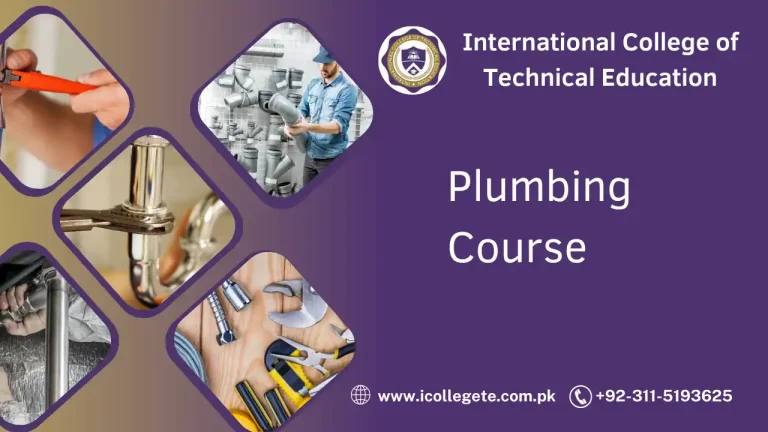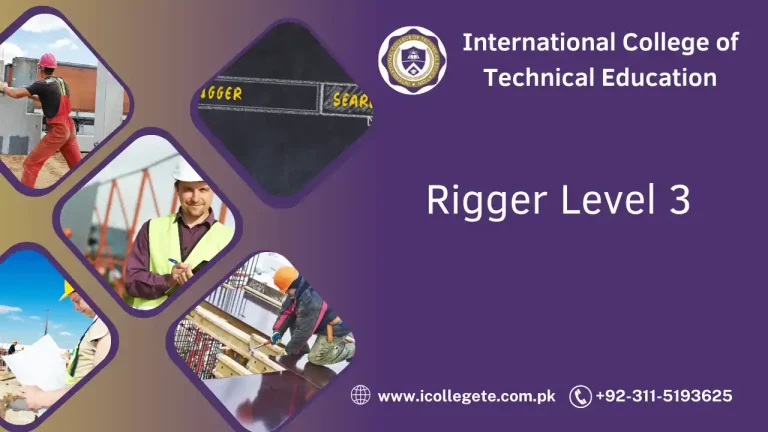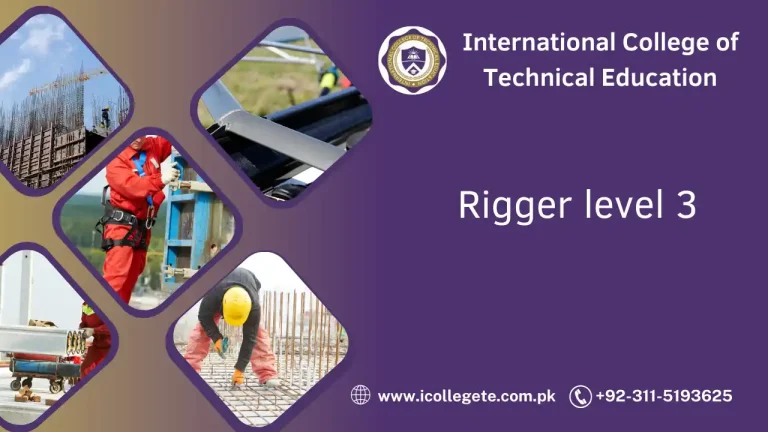In today’s fast-paced world, comfort and energy efficiency in buildings are a top priority, which makes HVAC (Heating, Ventilation, and Air-Conditioning) a crucial industry. As the demand for climate control systems in homes, offices, and industrial spaces grows, so does the need for skilled professionals who can design, install, maintain, and repair these systems. If you’re looking to step into this field, enrolling in an HVAC Heating, Ventilation, and Air-Conditioning course in Rawalpindi is an excellent way to build a strong foundation for your career.
An HVAC technician is responsible for ensuring that the heating, ventilation, and air conditioning systems in buildings are working efficiently and effectively. The HVAC Heating, Ventilation, and Air-Conditioning course in Rawalpindi is designed to equip students with the technical knowledge and hands-on skills needed to work with these essential systems. This course covers everything from the fundamentals of HVAC technology to the latest advancements in energy-efficient and environmentally-friendly solutions.
As the HVAC industry continues to grow, qualified technicians are in high demand across residential, commercial, and industrial sectors. This course is ideal for those who are interested in joining the industry or those looking to enhance their existing skills in climate control technology.
Course Overview
The HVAC Heating, Ventilation, and Air-Conditioning course in Rawalpindi provides a detailed and practical approach to understanding HVAC systems. The curriculum includes a combination of theoretical concepts and hands-on training, preparing students to work with the latest HVAC technologies. Topics covered include the installation, maintenance, troubleshooting, and repair of heating, cooling, and ventilation systems, as well as understanding energy efficiency and environmental considerations.
Students will be trained on both residential and commercial HVAC systems, allowing them to work in a variety of settings. The course also includes modules on the use of industry-standard tools, safety protocols, and regulatory standards.
Study Units
The HVAC course in Rawalpindi typically includes the following study units, each focusing on key areas of HVAC systems:
- Introduction to HVAC Systems
- An overview of heating, ventilation, and air conditioning systems, including their role in maintaining comfort in buildings.
- Basic principles of thermodynamics and heat transfer.
- Heating Systems
- Types of heating systems, including boilers, furnaces, and heat pumps.
- Installation, maintenance, and troubleshooting techniques for heating systems.
- Ventilation Systems
- Understanding the importance of ventilation for indoor air quality.
- Types of ventilation systems (natural vs. mechanical ventilation).
- Duct design and airflow distribution.
- Air Conditioning Systems
- Principles of air conditioning, including refrigeration cycles and components such as compressors and evaporators.
- Installation, operation, and maintenance of air conditioning systems for both residential and commercial spaces.
- Energy Efficiency and Environmental Considerations
- Introduction to energy-efficient HVAC systems and technologies.
- Environmental impact of HVAC systems and understanding sustainable practices, such as the use of eco-friendly refrigerants.
- HVAC Controls and Automation
- Study of smart HVAC systems and the role of sensors, thermostats, and automation.
- Integration of HVAC systems with building management systems (BMS).
- Troubleshooting and Maintenance of HVAC Systems
- Diagnosing and repairing common issues with heating, ventilation, and air conditioning systems.
- Regular maintenance tasks to ensure optimal performance and longevity of HVAC systems.
- HVAC Tools and Equipment
- Training on the use of industry-standard tools and equipment for HVAC installation and repair.
- Safety protocols for working with HVAC tools and systems.
- HVAC Safety and Compliance
- Understanding industry standards, codes, and regulations, including safety practices for handling refrigerants and other hazardous materials.
- Compliance with local, national, and international HVAC codes.
Learning Outcomes
By the end of the HVAC Heating, Ventilation, and Air-Conditioning course, students will be able to:
- Understand HVAC fundamentals: Gain a solid understanding of the principles of heating, cooling, and ventilation systems and how they work together to maintain comfortable indoor environments.
- Install and maintain HVAC systems: Be able to install, maintain, and troubleshoot HVAC systems in residential, commercial, and industrial settings.
- Work with different HVAC components: Gain proficiency in handling heating systems, air conditioning units, ventilation ducts, compressors, condensers, and more.
- Ensure energy efficiency: Be capable of designing and working with energy-efficient HVAC systems, understanding how to reduce energy consumption and operational costs.
- Follow safety protocols: Understand and adhere to safety regulations in the installation, maintenance, and repair of HVAC systems.
- Troubleshoot HVAC issues: Develop the ability to diagnose and resolve common problems with HVAC systems, ensuring smooth and efficient operation.
- Apply modern HVAC technologies: Work with smart HVAC systems, automation controls, and eco-friendly solutions, keeping up with the latest advancements in the industry.
Course Benefits
Enrolling in the HVAC Heating, Ventilation, and Air-Conditioning course in Rawalpindi provides several key benefits:
- In-Demand Career: The HVAC industry continues to grow, and qualified technicians are in high demand, offering job stability and security.
- Hands-On Training: The course includes practical training, ensuring that students gain real-world experience with HVAC systems.
- Comprehensive Skill Set: The course provides students with a well-rounded knowledge of both residential and commercial HVAC systems, making them versatile professionals.
- Energy Efficiency Focus: With the growing emphasis on sustainability, knowledge of energy-efficient HVAC systems and green technologies gives graduates a competitive edge.
- Attractive Salaries: HVAC professionals can earn competitive salaries, especially those who are skilled in modern systems and energy-efficient technologies.
- Diverse Job Opportunities: Graduates can work in a variety of roles, including installation, maintenance, troubleshooting, and system design, in both residential and commercial sectors.
- Career Advancement: With additional certifications or experience, students can move into more advanced roles such as HVAC design engineer, project manager, or HVAC consultant.
Who Is This Course For?
The HVAC Heating, Ventilation, and Air-Conditioning course in Rawalpindi is ideal for:
- Beginners: Individuals with no prior experience in HVAC who are looking to start a career in the industry.
- Technicians and Tradespeople: Existing tradespeople in construction, electrical, or plumbing who wish to specialize in HVAC systems.
- DIY Enthusiasts: Homeowners or hobbyists who want to learn how to work on HVAC systems for personal projects or home maintenance.
- Building Managers: Facility or building managers responsible for overseeing the operation and maintenance of HVAC systems.
- Entrepreneurs: Individuals looking to start their own HVAC installation, maintenance, or repair business.
Future Progression
After completing the HVAC Heating, Ventilation, and Air-Conditioning course, there are several career paths for further growth:
- HVAC Technician: Start as an entry-level HVAC technician working on the installation, repair, and maintenance of heating, ventilation, and air conditioning systems in various settings.
- HVAC Specialist: With experience, you can specialize in a specific aspect of HVAC systems, such as commercial refrigeration, air conditioning, or energy-efficient systems.
- HVAC Designer: As you gain more experience, you can move into designing HVAC systems for new constructions, ensuring optimal performance and energy efficiency.
- Project Manager: Manage large HVAC installation projects, overseeing teams of technicians and ensuring that projects are completed on time and within budget.
- HVAC Consultant: With extensive knowledge of HVAC systems, you can provide consulting services to businesses and organizations looking to improve or install HVAC systems.
- Entrepreneurship: Start your own HVAC business, offering installation, repair, and maintenance services to residential and commercial clients.
- Advanced Certification: Pursue advanced certifications, such as Certified HVAC Professional (CHP) or Certified Energy Manager (CEM), to expand your career opportunities and increase earning potential.
The HVAC Heating, Ventilation, and Air-Conditioning course in Rawalpindi offers a comprehensive and hands-on approach to one of the most important and in-demand industries today. Whether you’re looking to start a career, specialize in HVAC systems, or enhance your existing skills, this course provides the foundation you need for a successful and rewarding career in the HVAC field. With the growing demand for energy-efficient solutions and climate control systems, HVAC technicians are poised for long-term job stability and career growth. Enroll in this course today and take the first step toward a bright future in HVAC technology!







